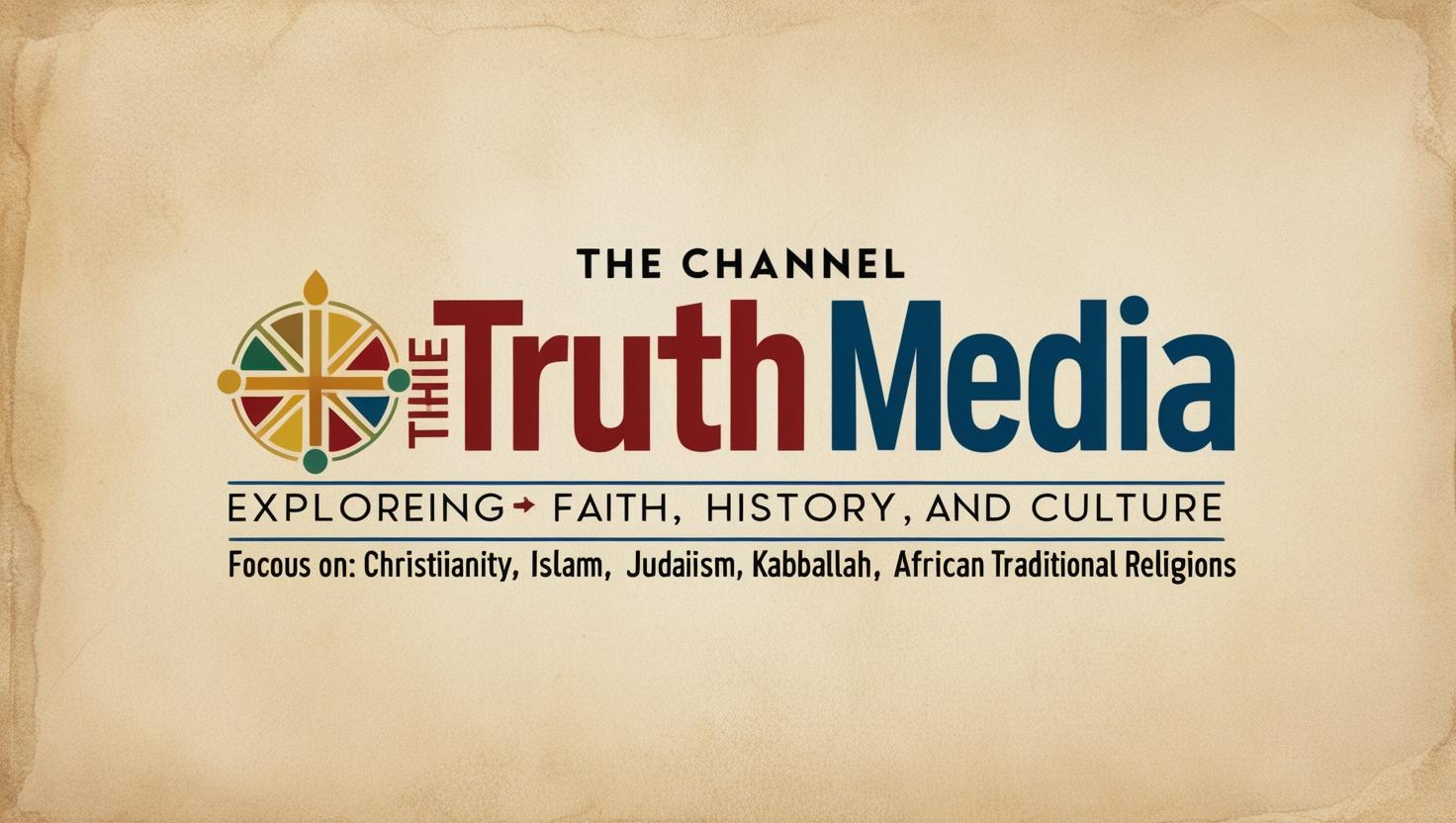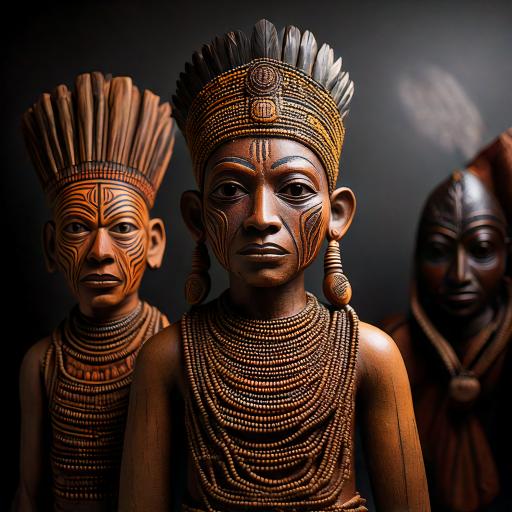African spirituality is not confined to isolated rituals or ceremonial observances; rather, it permeates every aspect of daily life, deeply influencing how individuals interact with one another, their environment, and the spiritual realm. In many African cultures, spirituality is woven into the fabric of daily existence, creating a seamless integration between the sacred and the mundane. From the moment individuals wake up to the time they retire for the night, African spirituality plays a vital role in guiding thoughts, actions, and decisions. This article delves into how African spirituality manifests in daily routines, sacred spaces at home, festivals and celebrations, and the role of divination in personal and communal decision-making.
Daily Offerings and Prayers: How Spirituality Is Integrated into Daily Routines
In many African communities, spirituality is not something that is reserved for special occasions or religious ceremonies but is integrated into everyday life through daily offerings and prayers. These rituals are designed to honor the divine, seek blessings, and maintain a harmonious relationship with the spiritual forces that govern the world. Whether in rural villages or urban settings, individuals and families begin and end their day with spiritual practices that affirm their connection to the divine.
The act of making daily offerings is an important feature of African spirituality, and it is believed that such offerings help maintain a balanced relationship with the spiritual world. Offerings can vary widely depending on the specific traditions of the community, but they generally include food, drink, incense, or other symbolic items that are presented to deities, ancestors, or spirits. In some African traditions, offerings are made in the morning to ensure the divine’s protection and favor throughout the day, while in others, evening offerings are made to give thanks for the day’s blessings and seek divine guidance for the future.
Prayers, too, are a daily part of life for many Africans, often spoken aloud or in silence as individuals engage with the spiritual realm. These prayers are typically directed toward specific deities, ancestors, or spirits, depending on the individual's needs or desires. For example, in the Yoruba tradition, individuals might offer prayers to Olodumare, the Supreme Being, asking for guidance, health, and prosperity. Similarly, in the Akan tradition, prayers might be offered to the Abosom, the deities associated with nature and daily life. The prayers themselves often invoke blessings for family, health, work, and protection, and they serve as a constant reminder of the spiritual forces that are believed to influence every aspect of life.
In addition to offerings and prayers, daily spiritual practices may also include rituals of purification and cleansing, designed to remove negative energy and restore balance. This can include bathing with sacred herbs, using water from spiritual sources, or burning incense to create a spiritually charged atmosphere. These practices help individuals stay connected to the divine, maintain spiritual purity, and ensure that they are prepared to face the challenges of the day.
Sacred Spaces at Home: Creating Spiritual Environments in Homes and Villages
In African spirituality, the home is not just a physical space but also a sacred environment that reflects the spiritual life of its inhabitants. Whether in urban areas or rural villages, creating spiritual spaces within the home is essential for maintaining a connection with the divine and ensuring the protection of the family. These sacred spaces are often referred to as shrines or altars and are carefully curated to honor ancestors, deities, and spirits.
The creation of sacred spaces in the home begins with the careful selection of items and symbols that represent spiritual forces. These can include images or statues of deities, ancestral relics, sacred objects such as beads, shells, and drums, and offerings such as food, drink, or incense. The placement of these items is also significant, as they are often arranged in specific ways to align with spiritual beliefs and practices. For example, in many African homes, shrines are placed in specific rooms or corners of the house, and offerings are made regularly to maintain a connection with the spiritual world.
Sacred spaces are also seen as a way of ensuring that the family or community remains under the protection and guidance of spiritual forces. These spaces are not only a place for daily offerings and prayers but also a space where family members can gather for communal worship, reflection, and healing. In some African traditions, the family shrine is a place for consulting with spiritual leaders or elders, who offer guidance and wisdom in times of need. This communal aspect of sacred spaces fosters a sense of unity and shared responsibility for maintaining spiritual well-being within the household.
Beyond the home, villages and communities also create sacred spaces where people can gather to honor the divine and perform collective rituals. These spaces might include sacred groves, temples, or shrines that are used for communal worship and spiritual ceremonies. These public sacred spaces serve as a focal point for the community's spiritual life and provide a place where individuals can come together to seek divine blessings, share in religious celebrations, and support one another in their spiritual journeys.
Festivals and Celebrations: The Role of Religious Festivals in Fostering Community Unity
Festivals and celebrations are an integral part of African spirituality, and they serve as important occasions for bringing communities together to honor the divine, celebrate life, and reinforce social bonds. These festivals are often centered around religious or spiritual themes, such as the changing of seasons, harvest times, or the honoring of specific deities or ancestors. The role of festivals in African communities extends far beyond the mere act of celebration; they serve as a means of fostering unity, reinforcing cultural identity, and deepening spiritual connections.
One of the most important aspects of African religious festivals is their communal nature. These festivals are not individual events but collective celebrations that involve the entire community. People come together to share in the festivities, participate in rituals, and offer thanks to the gods and ancestors for their blessings. This sense of communal participation reinforces the idea that spirituality is not just a personal endeavor but a shared experience that binds individuals together. The act of coming together to celebrate, pray, and make offerings creates a sense of solidarity and unity that transcends individual differences and strengthens the fabric of the community.
Religious festivals in African cultures often include music, dance, feasts, and other forms of expression that allow individuals to celebrate their spirituality in a joyful and lively manner. These festivals are not only about honoring the divine but also about celebrating life itself—acknowledging the abundance of nature, the vitality of the human spirit, and the interconnectedness of all living beings. Music and dance, in particular, play a central role in these celebrations, as they are believed to facilitate communication with the divine and serve as a form of spiritual expression. Through song and dance, individuals can experience a deep sense of connection with the gods, ancestors, and one another.
Festivals also provide an opportunity for individuals to seek blessings, healing, and guidance. During these celebrations, people often consult with spiritual leaders or diviners to receive spiritual insights or to ask for assistance with personal or communal issues. Whether it is seeking a bountiful harvest, healing from illness, or protection from misfortune, religious festivals serve as a time to invoke the favor of the gods and ancestors, who are believed to be more accessible during these sacred times.
In addition to their spiritual significance, religious festivals also reinforce cultural identity and heritage. These celebrations are often tied to the rhythms of nature, the agricultural cycle, or historical events that are central to the community’s identity. By participating in these festivals, individuals reaffirm their connection to their ancestors, their land, and their traditions. Festivals are a powerful way of passing down cultural values and beliefs to younger generations, ensuring that the spiritual practices of the community are preserved and passed on.
Divination and Decision-Making: The Role of Spiritual Guidance in Personal and Communal Decisions
Divination plays a critical role in African spirituality, serving as a tool for seeking guidance and making decisions in both personal and communal life. In African societies, divination is often seen as a way of consulting the divine or spiritual forces to gain insight into the future, resolve conflicts, or make important decisions. The practice of divination is deeply rooted in the belief that the spiritual world is closely interconnected with the material world and that divine guidance is available to those who seek it.
There are various forms of divination practiced across Africa, with each culture having its own methods and systems for seeking spiritual guidance. One of the most well-known forms of African divination is the Ifa system, practiced by the Yoruba people. In this tradition, a diviner, known as a Babalawo, uses a set of sacred symbols and verses to interpret the messages of the gods and ancestors. The diviner consults the spiritual realm to gain insight into an individual’s life, offering guidance on matters such as health, relationships, finances, and personal challenges.
Divination is not only used for personal decision-making but also plays a crucial role in communal affairs. Leaders and elders in African communities often consult diviners to help make important decisions related to governance, conflict resolution, and the welfare of the community. For example, divination may be used to determine the best course of action in times of crisis, such as during droughts, wars, or social unrest. By seeking the guidance of the divine, African communities ensure that their decisions are aligned with spiritual wisdom and cosmic order.
The role of divination in decision-making reflects the broader African worldview, which emphasizes the importance of spiritual guidance in all aspects of life. In many African cultures, it is believed that human beings are not autonomous but are interconnected with the spiritual realm, and that decisions should be made in accordance with divine will. Divination provides a way for individuals and communities to align their actions with the guidance of the gods, ensuring that they are making choices that will lead to harmony, prosperity, and well-being.
In conclusion, African spirituality is not a distant or abstract concept but is deeply integrated into daily life through daily offerings, prayers, sacred spaces, festivals, and divination. These practices serve to create a sense of connection with the divine, reinforce communal bonds, and guide individuals in their personal and communal decisions. By living in harmony with spiritual forces, Africans ensure that their daily lives are imbued with purpose, meaning, and divine favor.

